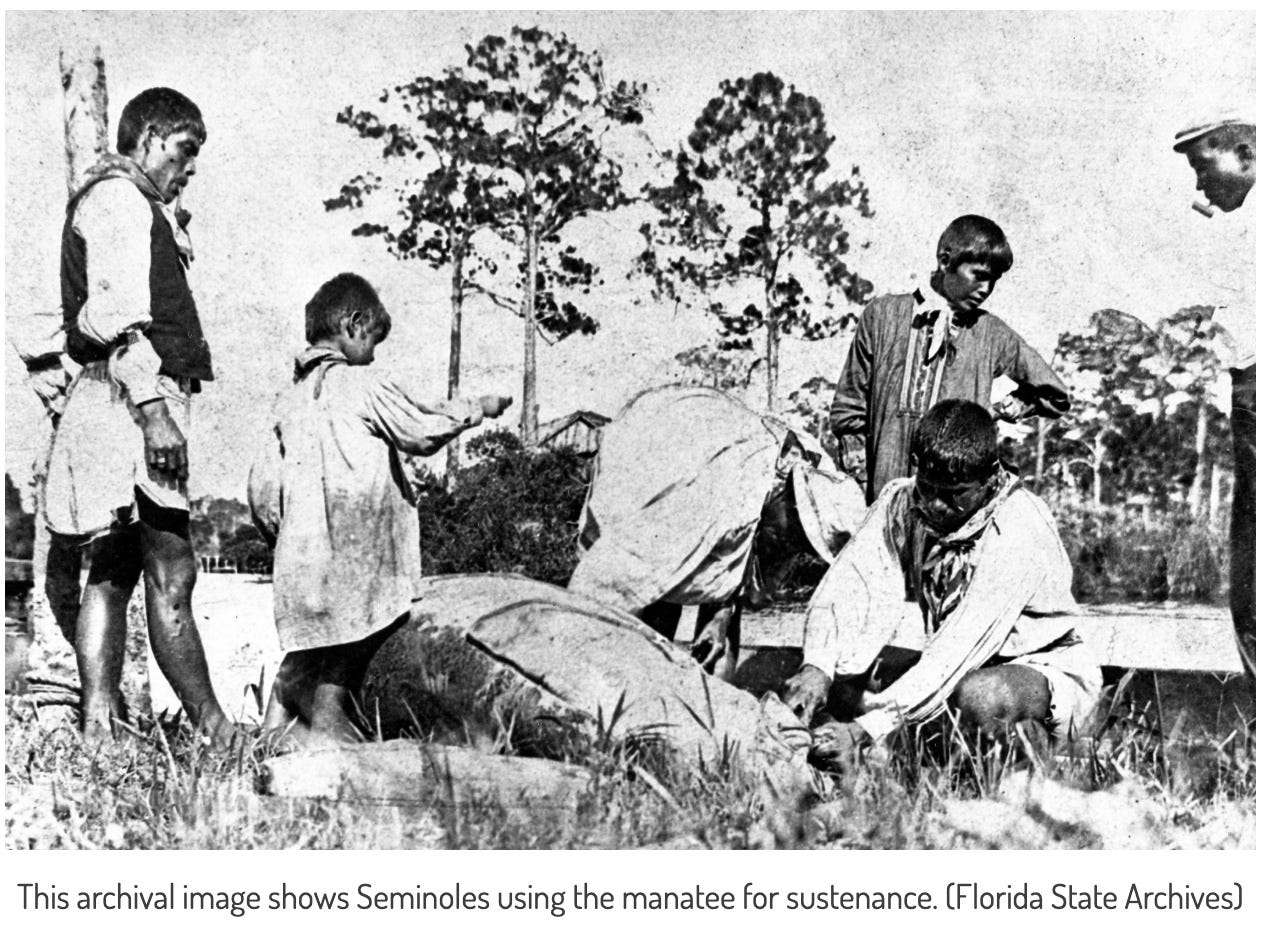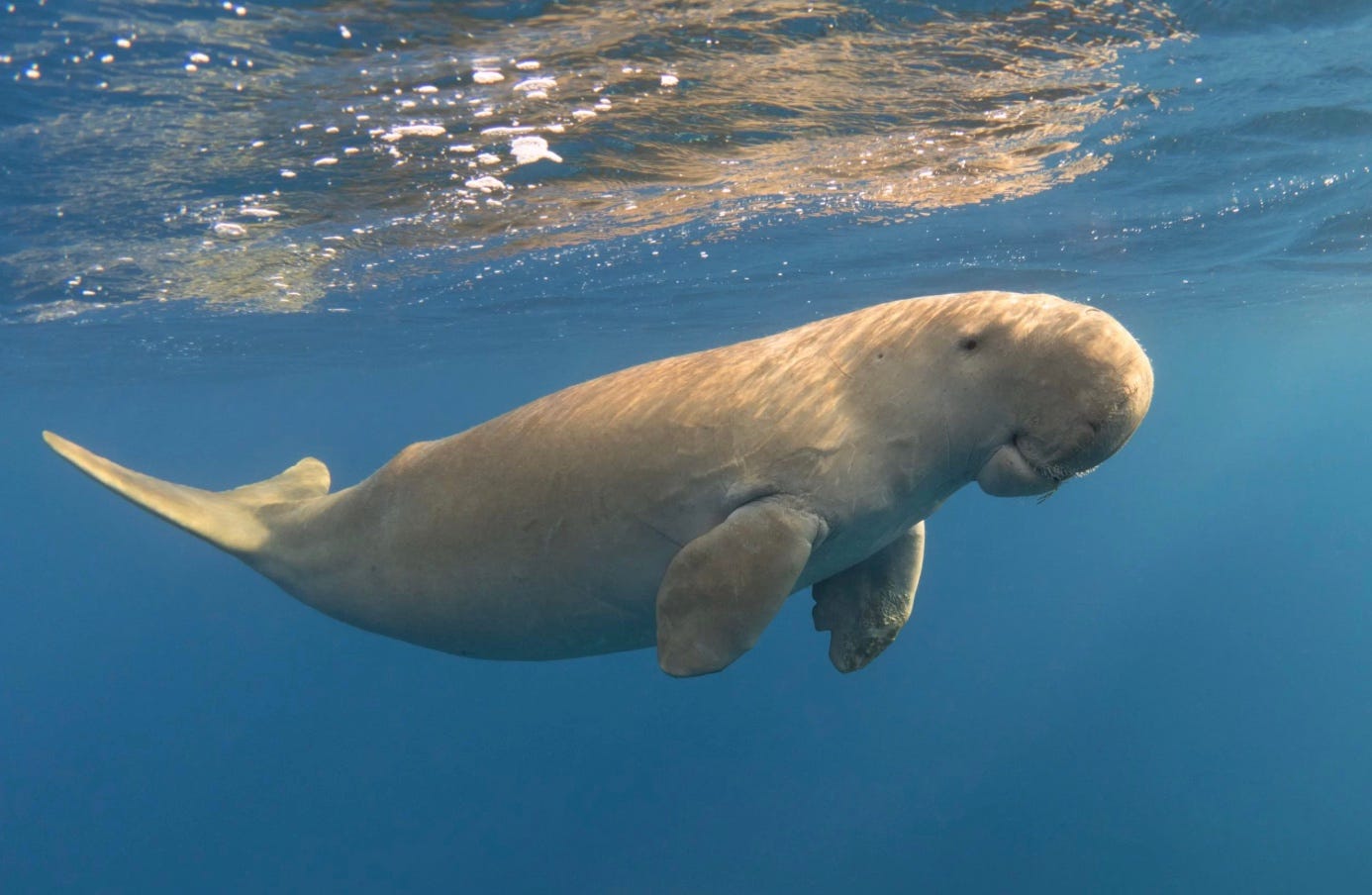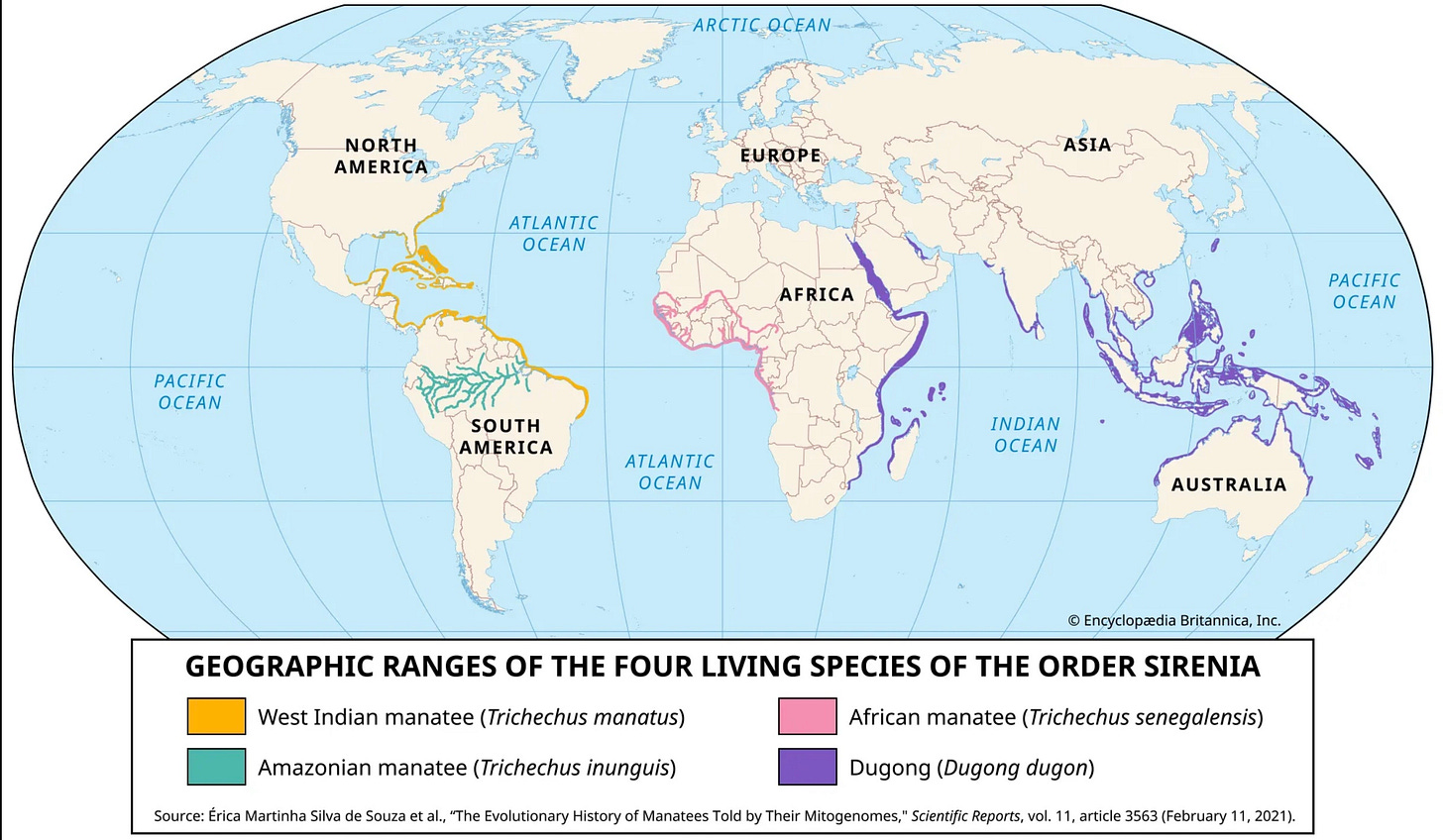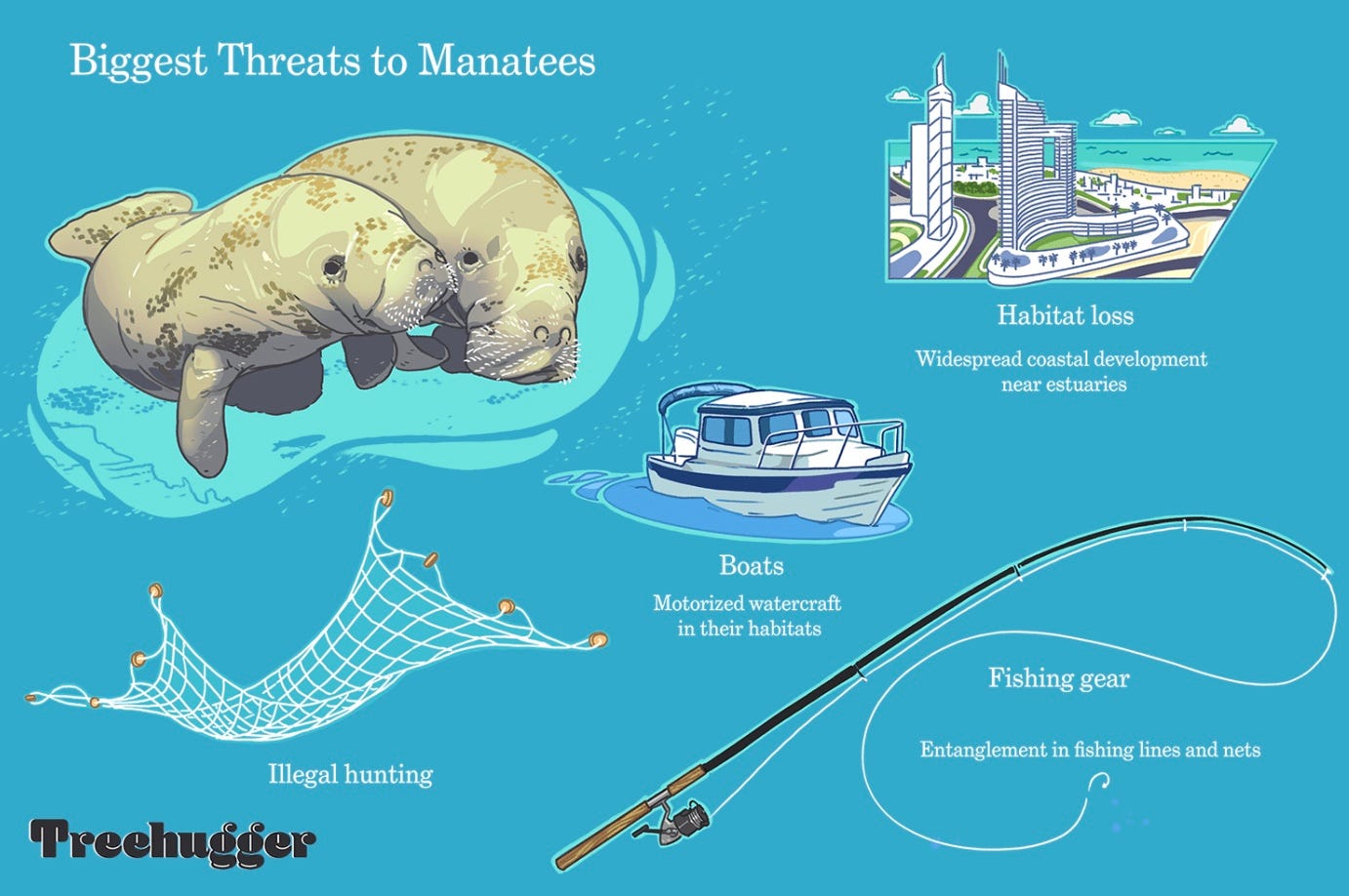Should Manatees Be Eaten?!
I'm not saying they should be, but they used to be!

Mr. Skeptical sees the headline and flips. “I’m going to get other subscribers and a bunch of pitchforks and burn your house down.”
“Take a chill-pill, will you. Just because I ask a question doesn’t mean I endorse it. I don’t think we should eat manatees, but I do think it’s important to realize that we used to.”
Subconscious Fat at 30,000 feet
In the past, sea cows weren’t sacred mascots—but a source of sustenance. Manatees once fed Indigenous peoples and settlers across the Americas. Globally, their cousin the dugong, still ends up in cooking pots across the Pacific.
Subconscious Fat at 10,000 feet
“They’re called sea cows for a reason. Historically eaten in Florida, the Amazon, and Africa. If they had four stomachs, they’d be ruminant royalty!”
Mr. Skeptical has calmed down some. “Protected, endangered, and cute. You’re pitching a cookbook for manatee jerky?”
His sarcasm is sooo irritating. “No. Besides, manatees are hind-gut fermenters, not ruminants. One stomach, huge cecum—like horses, not cows. They don’t have a four-chambered stomach like cows, buffalo, and lambs, so they aren’t the most ideal when it comes to edible meat for humans. And instead of eating them, we need to protect them. Sadly, it’s not humans eating them but us messing up the environment that causes more of their deaths.”
Subconscious Fat at Eye‑Level
Consider the American Bison. Once teetering on extinction, it now roams ranches and reserves in the hundreds of thousands. What changed?
We started eating it.
“Ah yes,” Mr. Skeptical smirks, “nothing ensures your survival quite like being delicious.”
“Indeed. The bison's comeback isn’t just a tale of ecological benevolence—it’s a triumph of market forces. Unlike the manatee, protected and practically sacred, the bison earned its rebirth by becoming profitable. Ranchers breed them, consumers crave them, and the species survives.”
“Funny,” says Mr. Skeptical, “when the bison was just a symbol, it got slaughtered. Once it became a product, it got saved.”
I raise a brow. For once, he might be onto something.
Practical Suggestions & Conclusion
Manatees, meanwhile, are protected from dinner plates. Their survival hinges on donations, government budgets, and moral sentiment. Noble, yes. Sustainable? Not always.
“But if manatee meat ever became a delicacy,” Mr. Skeptical muses, “they’d be breeding them in sea farms by now.”
I nod, slightly horrified—but also intrigued. I add, “This is so that our readers realize that we as humans are hunters and we ate any meat we could get our hands on. Even horses were eaten by us for a way longer period than since we recently started riding them.”
Mr. Skeptical adds, “Next you’ll be lobbying for whale bacon. Leave the sea cows alone, Hermann—they’re slow swimmers, not fast food.”
I take a deep breath and force myself to calm down, knowing that he gets off on making me look bad in front of the readers. “I’m not for slaughtering manatees and whales, but when it comes to invasive species in Florida like the iguanas and lionfish, I’m all for killing and eating them.”
Be aware.
Other links related to this post:
What Should We Do About Iguanas?
Horses
Wild New World
PS Links on LinkedIn, Facebook, and Instagram. Full disclosure: Chat GPT was used to research and enhance this post.
PSS My 2nd Live LinkedIn event on Zoom will be June 14th at 11 AM Eastern. It will be about the high cholesterol controversy. Register here on LinkedIn.








